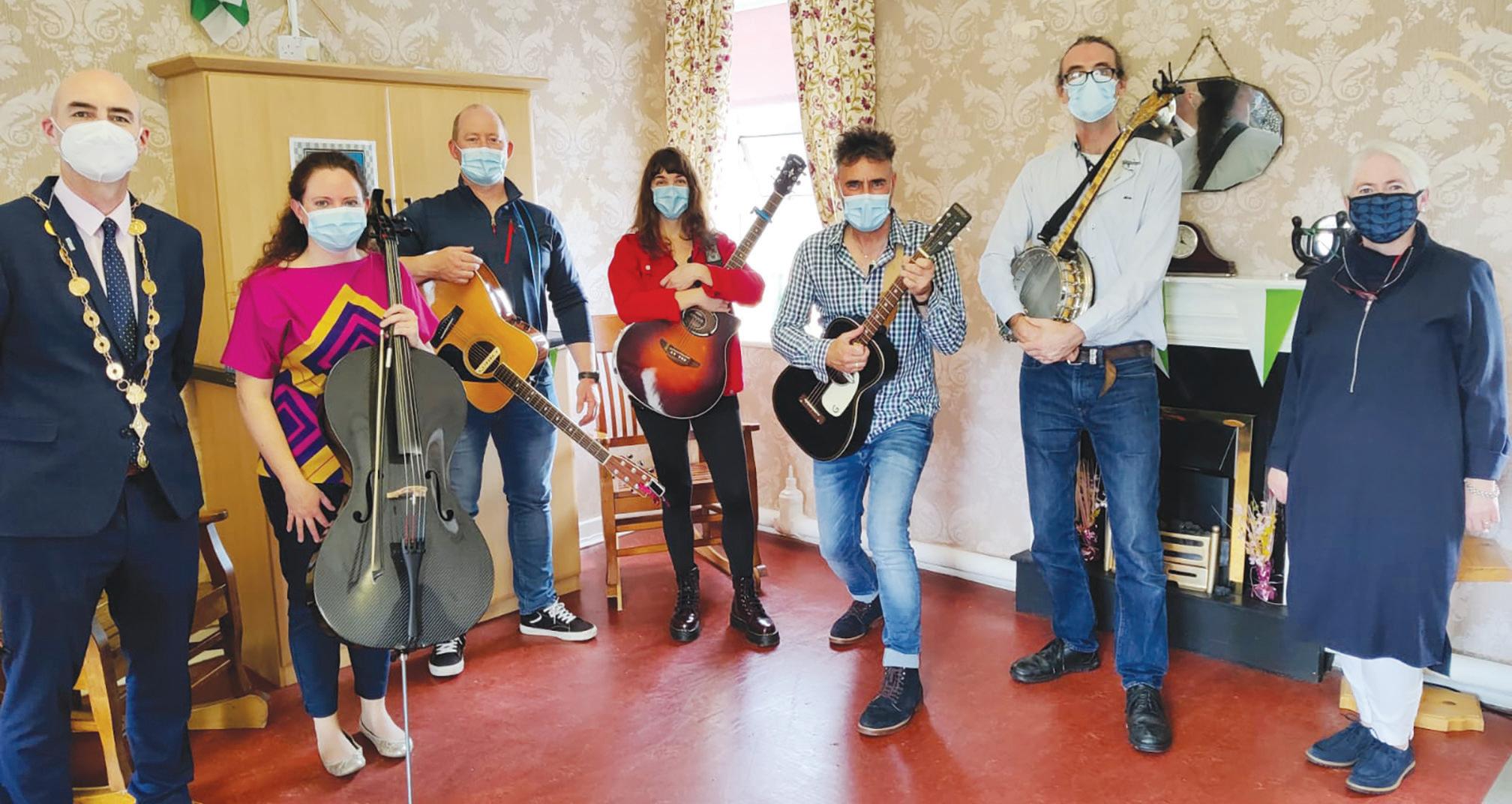
4 minute read
Sporting memories boost for people with dementia
HEALTHCARE STAFF IN THE NORTH EAST GET UNIQUE INSIGHT INTO LIFE WITH DEMENTIA WITH VIRTUAL TRAINING
A specially constructed sensory bus travelled across the North East region to give healthcare sta an insight into life as a person with dementia recently. 215 sta from older persons, intellectual disability, acute hospital, mental health and community services had the opportunity to participate in this virtual sensory training, organised by the Centre for Nurse and Midwifery Education (CNME) HSE Dublin North East to promote better awareness and understanding of dementia.
The virtual dementia training provided sta with an opportunity to experience life through the eyes of a person who has dementia. This experience facilitated sta to then reflect on how they could improve their care of the person with dementia.
This two-hour training session provided an opportunity for the participant to navigate a room as a person with dementia would experience. An information session followed the virtual component of the training, which explained and explored the sensory experience.
Cathy Tobin, Nurse Tutor in the CNME HSE DNE (pictured below with UK training facilitator Sue Baker), was also present to discuss with the participants how the learning from this experience could be used to create meaningful changes to care practices when caring for people with dementia.
A company in the UK provides this virtual dementia sensory training. A sensory room is created on a bus, controlled by a trained facilitator, and each participant is provided with equipment to wear prior to entering the room to enhance the virtual experience. The CNME HSE DNE hired its services for six days in December 2021.
This training facilitated the participant to become aware of the di culties faced by people living with dementia including their challenges in negotiating the environment, their sense of helplessness, issues with colour signage, lighting and sound.
The CNME DNE HSE provides education for all services across Louth, Meath, Cavan and Monaghan, including a 2.5 day National Dementia Programme. This incorporates a quality initiative project which promotes the implementation of a change project which the learners undertake in the in their healthcare care setting. Information on this
dementia training programme or any other dementia training within DNE can be obtained through contacting Catherine.tobin@hse.ie
SPORTING MEMORIES
A new reminiscing programme for people with dementia
An initiative of The Alzheimer’s Society Kevin Quaid, chair of the Irish of Ireland, Sporting Memories groups are Dementia Working Group, at intended to provide a forum for people the fi rst Sporting Memories with dementia, families and friends to event with soccer club reminisce and talk about bygone sporting Shelbourne Rovers FC. days as well as encourage participation in physical activity. A new Sporting Memories Handbook has been developed to support local sports organisations in setting up Sporting Memories groups.
The programme is supported by the HSE’s Dementia: Understand Together campaign.
The handbook is part of the wider rollout of the Sporting Memories programme in communities across Ireland. The initiative hopes to inspire and encourage local sporting clubs and organisations to organise regular Sporting Memories groups within their localities. The groups bring people together to reminisce about their lives through the medium of sport, using images, video footage, memorabilia, quizzes, and guest talks to spark memories and encourage social engagement. By using sporting cues, the purpose is to stimulate memory, improve communication and social skills, as well as create a sense of camaraderie and belonging.
The ultimate objective of the programme is to tackle isolation, depression, and loneliness through safe, friendly sessions, led by people with a passion for sport and a desire to help people stay engaged in their communities.
The booklet is a ‘how-to’ guide for the development of Sporting Memories groups, and includes information on dementia, how to set up groups and organise di erent activities, as well as o ering communication tips, ways to create a supportive environment, and details of how to access group resources. Physical activity is also a key part of the programme with light exercises built into each session.
“The Dementia: Understand Together campaign is all about encouraging people to see the person with dementia for who they are and how, with the appropriate supports, they can live active and fulfilling lives. Human beings are social creatures, and this is no di erent for people with dementia. They just sometimes need that little bit of extra support to be involved,” said Fiona Foley, National Coordinator, Dementia: Understand Together.
“The Sporting Memories programme is a wonderful example of this objective in action. It helps to build social connection by bringing families, friends, neighbours and supporters together. It provides people with an opportunity to keep their brains engaged by revisiting memories of yesteryear. And it o ers people the chance to undertake some physical activity too in keeping active. I would really urge sporting clubs across the country to consider signing up for the programme. It will be a genuine demonstration of their commitment to being a club for the entire community and to ensuring that no one gets left behind.”










